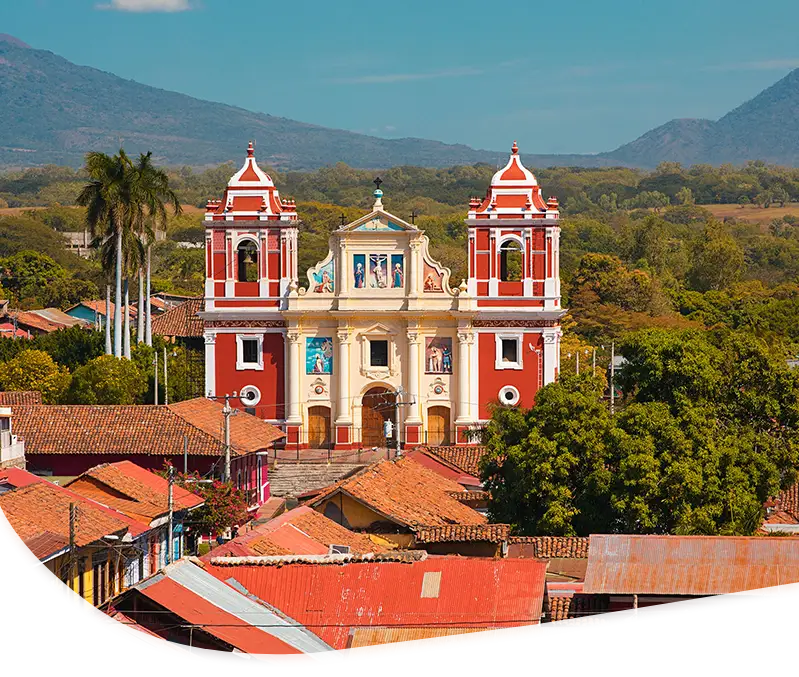Labor Laws in Nicaragua
- Annual Leave: 15 days
- Maternity Leave: 12 weeks
- Public Holidays: 11
- Workweek: 48 hours per week.

Get everything you need to hire talent in Nicaragua. Download our comprehensive guide for hiring in this expanding market.
Capital:
Managua
Language:
Spanish
Currency:
Nicaraguan córdoba
Please enter the following information:
Nicaragua has a progressive income tax with rates from 0% to 30%.
The standard GST rate is 16%.
Employer Contributions
Employee Contributions
Here are the main work visas available in Nicaragua:
Work Permit
Temporary Residence Visa
Permanent Residence Visa
Setting up a company in Nicaragua can be expensive and complex. Global Expansion simplifies your entry into this market.
We handle hiring, HR, and payroll while ensuring compliance with local regulations, all without establishing a local entity.
Our Nicaragua Employer of Record (EOR) solution lets you focus on your business growth.